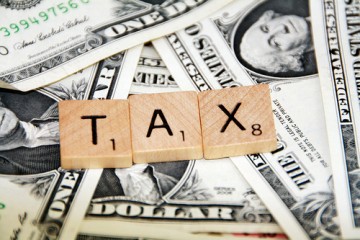Fiscal Alliance Says New Taxes Will Make MA Less Competitive
Thursday, January 17, 2013

With nearly $2 billion in additional investment on tap for the next fiscal year, Patrick called for a 1-percent increase to the state income tax from 5.25 percent to 6.25 percent but a reduction to the state sales tax as well, from 6.25 percent to 4.5 percent.
“There is no good time to raise taxes. I know how tough times have been on the people and families of the Commonwealth,” Patrick said in his State of the Commonwealth address on Wednesday. “I would not ask if I did not believe in my heart that investing meaningfully today in education and transportation will significantly improve our economic future. But because we all have a stake in that future, we should all contribute to paying for it.”
The Governor said all of the proceeds from the reduced sales tax would be dedicated to a public works fund to support the 10-year, $13 billion capital investment plan for the state's transportation network introduced on Monday, the school building fund and other public infrastructure. Under Patrick's plan, the sales tax proceeds would be off limits for any other uses.
The increased income tax will fund the extensive education platform Patrick announced on Tuesday.
In addition, the Governor proposed doubling the personal exemptions for every taxpayer in the Commonwealth and eliminate a several itemized deductions.
According to Patrick, all new revenue will be required to meet the four principles of comprehensive, fair, dedicated and competitive.
"Every one of us here has to think twice before asking people who already feel strapped to contribute a little more," said Patrick to the Legislature. "But this time, instead of sinking into the same old slogans, let’s have a serious, fact-based debate. The people we work for want the schools I have described; they want the rail and road services we have laid out; and above all they want the opportunity and growth these investments will bring. We on their behalf have choices to make. I choose growth.”
While addressing the state's transportation needs should be a high priority, Massachusetts Fiscal Alliance Executive Director Paul D. Craney expressed concerns on earlier in the day on Wednesday that the $1 billion per year plan, and the tax proposals that came along with it, might not be the most sensible path for the Commonwealth to go down.
Those options had included a payroll tax for companies in regional transit authority districts, a gas tax, a vehicle mile tax, and increases to the sales and income taxes.
"Many of the proposals will cause our state to become less competitive with neighboring New England states," Craney said.
"One of the best ways we can attract more revenue is by implementing economic reforms and incentives to keep jobs, people and income in Massachusetts. Our goal should be to become more economically competitive with our New England neighbors and attract growth.”
Patrick's proposed sales tax cut may alleviate some of the Fiscal Alliance's concerns about the Commonwealth's competitiveness. However, the increase to the state income tax rate to 6.25 percent would place Massachusetts in even starker contrast to neighboring New Hampshire, which has no income tax.
Other groups welcomed Patrick's proposals, which they said will lead to more equity in the Massachusetts tax system while also funding important initiatives that will benefit residents across the Bay State.
"The Governor provided a clear statement of what it takes to fix our transportation system, improve our schools, and expand economic opportunity for Massachusetts families," said Noah Berger, President of the Massachusetts Budget and Policy Center. "The proposals he made to pay for those investments are reforms that would also improve the fairness of our overall tax system."
Related Articles
- Worcester Businesses That Pay the Most Taxes
- Worcester Looks to Lure Developers With Tax Breaks
- Highest Taxed Communities in Central Mass for 2013
- MA Property Taxes Among Nation’s Worst For Businesses
- MA Taxpayer Group Says Closing Loopholes Won’t Boost Revenues
- MA Voters Strongly Oppose Gas Tax Hike




 Delivered Free Every
Delivered Free Every
Follow us on Pinterest Google + Facebook Twitter See It Read It